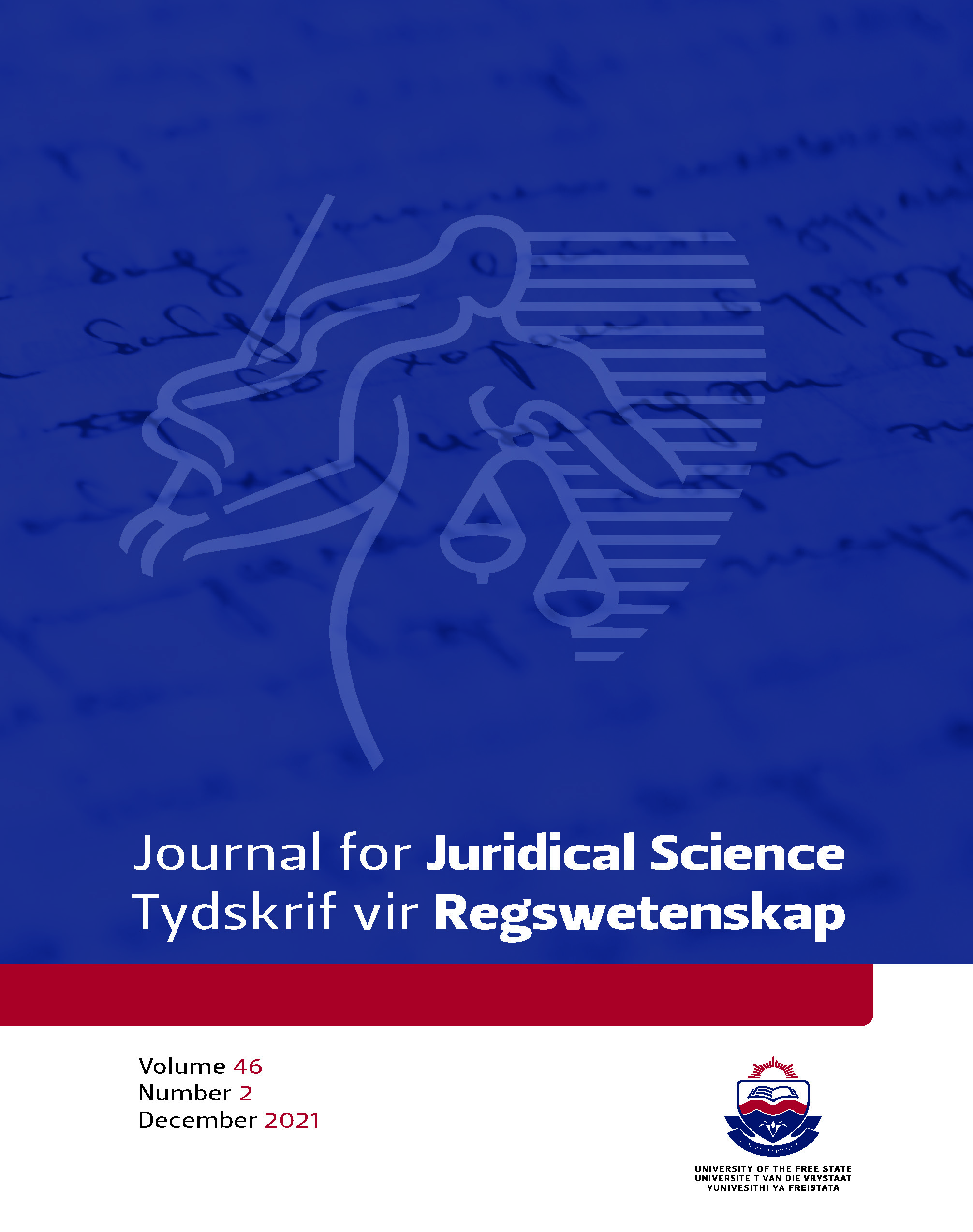A critical analysis of the inefficacy of court - Annexed Mediation (CAM) in South Africa – Lessons from Nigeria
DOI:
https://doi.org/10.18820/24150517/JJS46.i2.2Abstract
As a result of defects in the South African civil justice system, the Department of Justice and Constitutional Development introduced voluntary court-annexed mediation (CAM) in the magistrates’ courts in 2014. CAM was chosen under the broader need for greater access to justice because it has the potential to make dispute resolution efficient, amicable, and affordable. It can, therefore, contribute to access to justice for all members of society. Since the amendment of the Magistrates’ Court Rules to provide for CAM, the uptake of mediation in terms of the CAM system has unfortunately been inadequate. The aim of this article is to identify reasons for the inefficacy of CAM since its implementation. We use normative research to critically analyse existing court rules and authority. We conclude that there are several reasons for CAM’s inefficacy which are elucidated in the main text. It is important to understand these reasons, as the legislature presents CAM as a mechanism to improve access to justice. From this platform, we evaluate the mechanisms for court-connected alternative dispute resolutions provided by the Nigerian Multi-Door Courthouse (MDC) system. This reveals policies and practices that could potentially improve the efficacy of CAM in South Africa, as these relate to the factors identified as impediments to the optimal functioning of CAM in our civil justice system. As such, we identify valuable lessons that can be learned from this comparison. Building hereon, and on the conclusions reached elsewhere in the article, we postulate that the mediation scheme, as contemplated by Rule 41A of the Uniform Rules of Court (as applied in the superior courts), should also be implemented in the magistrates’ courts. The article concludes that improving CAM in South Africa is of critical importance to advancing access to justice and departing from a culture of conventional adversarial dispute resolution.
Downloads
##submission.downloads##
Published
Issue
Section
License
Copyright (c) 2021 EC Muller, CL Nel

This work is licensed under a Creative Commons Attribution 4.0 International License.




